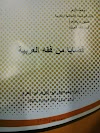Parents often face unique questions from their children, especially during their early years. One common question is, "Why did Allah create humans differently?" This question reflects their growing awareness of the differences around them, whether from media, friends, or their environment.
Watch the explanation on my YouTube channel: https://youtu.be/gT5o1WgXkXs
Understanding Children's Curiosity
When children ask about differences, we as parents must respond patiently and in simple language that aligns with their understanding. For instance, we can start a dialogue by saying, "You mean different ethnicities, right? There are Javanese, Sundanese, and Westerners.." This approach helps them relate to the concept of diversity.
Children may respond with curiosity, asking why people look different. We can explain, "Allah created humans differently so that we can know one another. We can be friends and learn to respect our differences by getting to know each other. The world would be boring and not beautiful if everyone were the same. It is precisely because of our differences that life becomes more colourful."
Using Everyday Examples
We can use examples from their daily lives to make the explanation more relatable. For instance, we might say, "Imagine the flower garden we often visit. Which is more beautiful: a garden with various colours or one with the same flowers?" Children usually respond that they prefer the garden with different colours, highlighting their innate appreciation for diversity.
We can further elaborate, "Just like that, humans are created differently to make our lives more beautiful and vibrant. This answer helps children understand that differences are natural and should be respected. Gradually, they will learn to accept and honour others, regardless of race, ethnicity, or culture."
Islamic Perspective on Diversity
Allah Subhanahu wa Ta'ala has explained the importance of diversity in the Quran, specifically in Surah Al-Hujurat, verse 13:
"O mankind! Indeed, We have created you from a male and a female and made you into nations and tribes so that you may know one another. Indeed, the most noble of you in the sight of Allah is the most righteous among you."
This verse teaches us that differences are part of Allah's plan, and what matters most is how we conduct ourselves and our piety in life.
When children ask questions, never ignore their curiosity. Answer them with patience and love, as these inquiries are opportunities for them to learn about the world, including the beautiful values contained in Islamic teachings.









